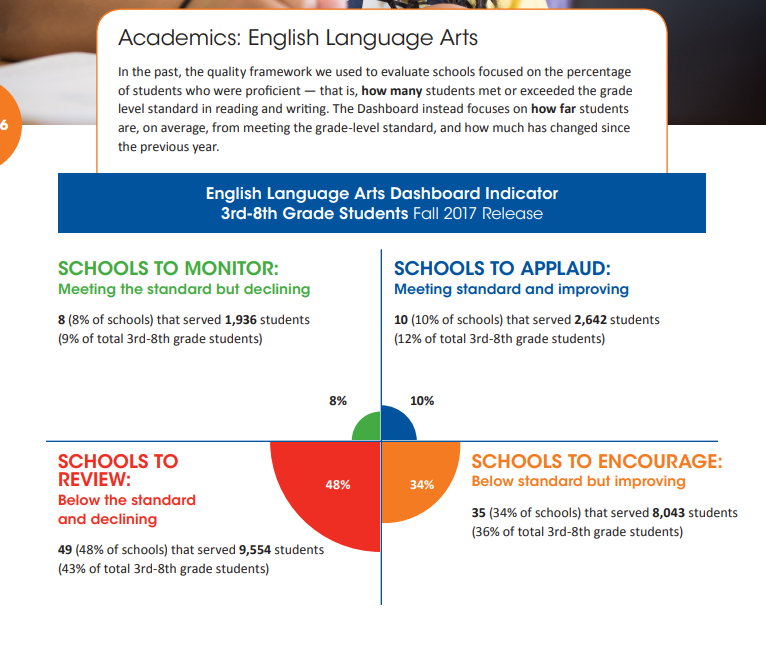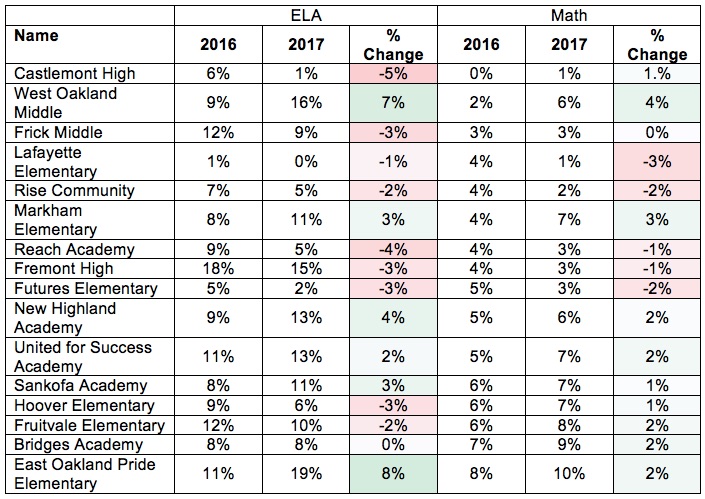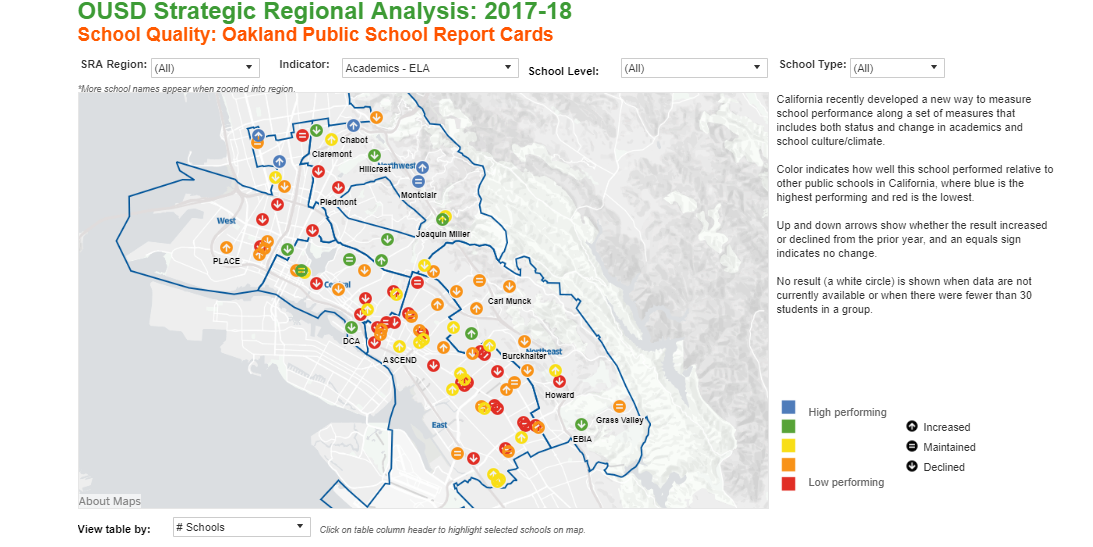Everyone wants great neighborhood schools. Thing is, that has never existed in my experience, at least not in Oakland. And saying that our school improvement strategy is centered around something that has never happened is at best a remote hope, and at worst a lie that asks parents to wait for a savior that will never come. Meanwhile the status quo continues, with predictable winners and losers.
And I do get it. When I talk to parents, they want good neighborhood schools. That’s what they say. I have never heard a regular parent mention a “portfolio model” or even really the whole set of ideas behind it. There is not a lot of talk about a variety of distinct options, school choice, autonomy zones etc. Even as a guy who supports “school choice” I really don’t hear parents talk much about that, if they have a high- quality neighborhood school. It only becomes an issue when they don’t.
By and large families want schools that they can safely walk to, which are safe, have caring teachers, and good academics. So regular parents, speaking in generalities, do want a great neighborhood school. Therefore it does make sense that folks would identify that as a campaign platform or reform strategy.
The problem is, it’s not going to happen. And like Santa Clause, a great school in every neighborhood, is a comforting myth to the uninitiated. But if you tell the initiated that Santa Clause is gonna educate their kid.
Well…
The Realities of School Performance in Oakland
We have school quality problem in Oakland across both the charter and district schools. Oakland has the highest percentage of very low performing schools in the State, those in the lowest 5%. And at least last year, those schools didn’t make much progress. Here is the data from Educate 78,which admittedly is a year old.
- Compared to the state, Oakland is way overrepresented among the bottom 5% statewide. Oakland has 26 schools in the bottom 5% statewide (representing 21% of 124 Oakland public schools with scores), more than any city other than Los Angeles, which has 31 – which has 10x the number of students compared to Oakland – see this LA Times analysis). This is a big deal because under federal law (ESSA), these are the schools that “have to” be improved.
- The schools in the bottom 5% of absolute performance generally saw little growth. Of the bottom 15 schools in ELA and Math in 2016 (excluding alternative schools), the new results show little movement (modest gains/losses ±3% for most schools, which would be considered “maintaining” or no improvement) in Math. Only two showed significant growth in ELA. Here is a map of these schools, which are primarily in West and East Oakland.
The numbers don’t tell the whole story for any school, but as a totality, if you are in these neighborhoods, there is a trend. Some neighborhoods have consistently had high performing schools and some have consistently not. And let’s look at the Oakland Achieves data around schools making progress and schools above the state average-almost half, 48%, of schools in Oakland are below the state average and performance is declining. So almost half of the schools are showing decreasing performance.
 Here’s the school performance map. I bet dollars to donuts that these colors are 90% consistent year to year.
Here’s the school performance map. I bet dollars to donuts that these colors are 90% consistent year to year.
Who Loses in Neighborhood Schools
It tends to be the folks in neighborhoods with high performing schools who tout the need for great neighborhood schools everywhere, as opposed to more school choice, or opening up access to underserved families at “their” school. Ultimately, the “great school in every neighborhood” is an argument for the status quo, which is clearly working for some folks and clearly not working for others.
So, the next time someone from a high performing school in the Hills lectures someone from the Flats on choice, or falls back on some tired dreamscape of the great future when all schools are great. And they ask you to enroll your kid in a school that has struggled for decades, ask them if they want to switch seats.
I don’t think they are going to do that, but if they did, I bet you would hear a lot less about making neighborhood schools great and a lot more about choice—or they would send their kid to private school.



